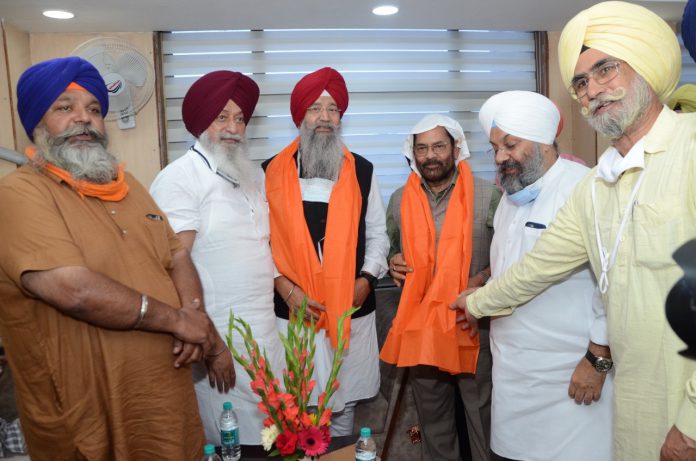Iqbal Singh Lalpura, a leader in the BJP and a former IPS officer from Punjab, claims that the wounds from the militancy era are still raw. A restorative justice tribunal is his suggested solution. According to BJP leader and former IPS officer Iqbal Singh Lalpura, Prime Minister Narendra Modi is a “better Sikh than most of us.” Lalpura, a former deputy inspector general of the Punjab Police who was appointed to the BJP parliamentary board in August, urged for more initiatives to “heal” the Sikhs’ wounds in an interview with ThePrint.

Lalpura claimed that the Modi administration was “doing everything” for the Sikhs, a group to whom he belongs, citing actions like the opening of the Kartarpur Corridor in 2019 and the removal of Sikh overseas nationals off a covert blacklist that same year. “The blacklist of Sikh foreign nationals has been removed. We’re giving them jobs. The Modi government is doing everything. Modiji is always available for Sikhs,” Lalpura, who’s also chairman of the National Commission for Minorities, said.
 “We love Sikhs and are ready to do anything for them. Modiji had announced he was taking back the farm laws on Guru Nanak Dev’s birthday. He’s a better Sikh than most of us,” Lalpura further said, adding that the BJP has a plan for “peaceful co-existence” with the Sikhs. Lalpura, who was Tarn Taran’s senior superintendent of police (SSP) at the time, was one of three officers who detained Sikh militant commander Jarnail Singh Bhindranwale in 1981 as part of an investigation into an altercation between Sikhs and Nirankaris.
“We love Sikhs and are ready to do anything for them. Modiji had announced he was taking back the farm laws on Guru Nanak Dev’s birthday. He’s a better Sikh than most of us,” Lalpura further said, adding that the BJP has a plan for “peaceful co-existence” with the Sikhs. Lalpura, who was Tarn Taran’s senior superintendent of police (SSP) at the time, was one of three officers who detained Sikh militant commander Jarnail Singh Bhindranwale in 1981 as part of an investigation into an altercation between Sikhs and Nirankaris.

The wounds from Punjab’s militancy days are still fresh in the minds of Sikhs, Lalpura said, adding that this is especially true for those whose family members were either killed or arrested under the Terrorist and Disruptive Activities (Prevention) Act (TADA) an erstwhile anti-terrorism law that was in force in the days of Punjab’s militancy. The draconian legislation gave law enforcement agencies wide search, seizure, and arrest powers.

